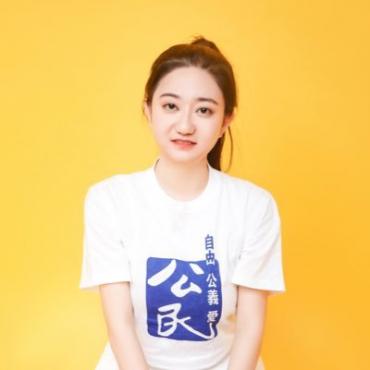Last updated: March 22, 2021
Li Qiaochu (李翘楚), a feminist and researcher in labor issues, holds a bachelor’s degree from the School of Labor and Human Resources at Renmin University of China and a master’s degree in public policy from the University of York in the United Kingdom. After graduation, she worked as a research assistant at Tsinghua University. Li has long been engaging in, following, and conducting research on labor rights, women’s rights, and civil society human rights defense issues in mainland China. Her areas of research concern policy issues such as pension insurance from a labor perspective.
In the fall and winter of 2017, during the expulsion of migrant workers in Beijing’s campaign to “clear out low-end populations” from the suburbs and forced demolition of their housing, Li worked with fellow volunteers to gather, compile, and share information, and then disseminated it in the most affected communities so that fired and evicted migrant workers could get leads on finding new jobs as well as free or affordable alternative housing.
After 2018, she actively participated in civil society movements such as protesting the “996” (9a.m. to 9p.m., 6 days a week) work hours and supporting the MeToo movement. She consolidated case files, wrote reports, and advocated for justice for various prisoners of conscience and their families on Twitter and other social media platforms.
Despite a diagnosis of depression in June 2019, Li pressed on with her social justice advocacy work. After the COVID-19 outbreak in Wuhan, she joined several online and offline volunteer coordination groups to distribute masks to local sanitation workers in Beijing. She also assisted in self-help and mutual support efforts for pregnant women in infected areas and matched them with volunteer doctors. Noting problems that had arisen during the epidemic, including in field hospitals, such as the lack of attention to gender issues, and particularly the prevention of gender-based violence, she promptly organized volunteers to collect and compile recommendations for preventing sexual violence in emergency situations.
She was repeatedly harassed by domestic security and public security officers for her long-term and highly involved engagement in civil society activities. Since the beginning of December 2019, domestic security officers have been stationed outside her home every day, following her to and from work, in a serious violation of her privacy and civil rights.
In what came to be known as the “12.26 Citizen Case,” the authorities conducted a massive search and arrest of activists who attended the gathering in Xiamen. Among them was Xu Zhiyong (许志永), Li’s boyfriend.
On December 31, 2019, Li was summoned and interviewed by the Beijing police for 24 hours after Xu had gone into hiding, and spent New Year’s eve at the police substation in Haidian District in Beijing. After her release, she published an article, “Entering the New Year in Handcuffs: An Account of Being Taken into Custody on New Year's Eve” online to detail the course of events, calling on people to overcome their fears and support those affected in the “12.26 Citizen Case.” After Xu was apprehended by the police in Guangzhou on the night of February 15, 2020, Li was taken by Beijing police in the early hours of the next morning on February 16, 2020 and was secretly held for four months. After she was freed, she tweeted about her experience of detention and expressed solidarity with the other detainees and continued to file complaints about the food issues in the detention center where Xu was held.
On February 6, 2021, Li was summoned by the Beijing domestic security unit and was taken away by the police of Linyi, Shandong Province. She was subsequently criminally detained.
On March 15, 2021, Li was officially arrested and held in the (supervised) “Eastern District” of Linyi People’s Hospital in Shandong and has yet to be allowed to meet with a lawyer.
